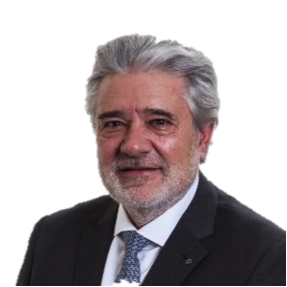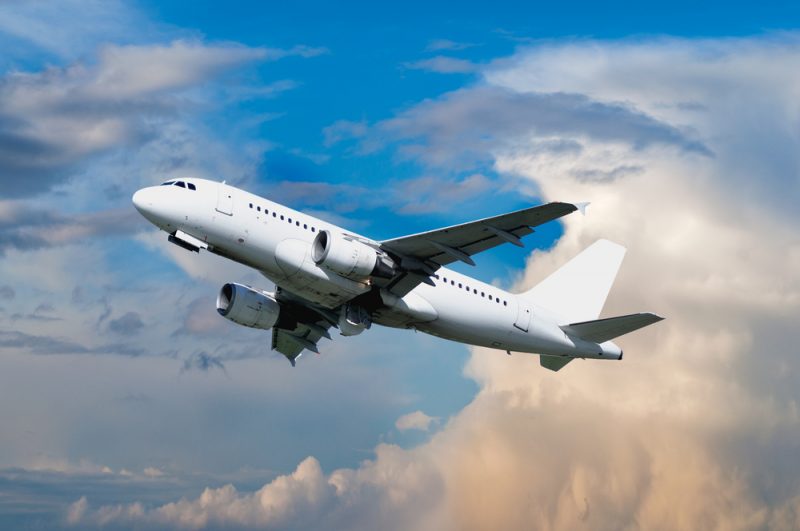Setting up a new business to soar starts with the right team on the ground. Never underestimate the value of industry expertise and complementary strengths.

When Maria Esther Martinez, an engineer, set out to develop Aerosens, a Miami-based technology startup serving the aviation industry, she had corporate and startup experience. Martinez had worked for Airbus in France as a telecom engineer and then as COO of a technology startup in Dubai. She also earned an MBA.
But she knew that wasn’t enough. Martinez knew exactly what she needed for her team in order to go after a first-mover advantage in a highly regulated industry: More industry expertise on the founding team. And she got it.
She co-founded the company with Farid Hassani, who was leading the Technology and Innovation Group for Airbus.
“He was responsible for filtering business needs, identifying appropriate solutions and anticipating trends in Auto-ID & IoT technology. As a member of the team working on the Airbus traceability project, he was in charge of the data standards for global interoperability. No one knows the standards like Farid – he wrote the latest spec,” said Martinez.

Somehow she convinced Hassani to leave his corporate job to join her for this Miami startup.
Tech expertise – check. They set up the company and began talking to airline executives and workers to learn their pain points. They quickly pivoted away from an original idea as the result of these discussions.
Next Martinez and Hassani needed someone who could open doors and they found that in Rafael Alonso, who recently retired from his position at Airbus as President Airbus Latin America & Caribbean after over 30 years in the industry.
She met Alonso at a dinner and after hearing about the concept, he expressed interest in joining the startup a few days later.

“Rafael brings an enormous wealth of knowledge and experience that is invaluable when designing systems tailored for the airline industry,” she said.
Aerosens provides IoT and RFID sensors and other solutions for the aerospace industry for better safety, security and efficiency.
“The idea behind the company is to provide technology solutions to the airlines to become more efficient,” said Martinez, Aerosens CEO. In the growing industry, that’s key. “For example, checking emergency equipment manually takes six hours — our solution takes one minute on their mobile phone in real time. They can get alerts in real time if something is tampered with inside the plane.”
Airlines also have a problem with passengers stealing life vests, believe it or not. And what if a defibrillator goes missing? It’s happened.
“Technicians can spend two minutes literally with their phone in the aircraft and they can know everything in the aircraft, when it expires, when it to be replaced, when it needs calibration — today it takes hours manually to do this.”
Aerosens recently signed an agreement with South Florida-based Heico, one of the world’s largest manufacturers of airport parts, which will be a huge help with distribution, Martinez believes. There are still certifications to get, and once that is completed it will be a bigger barrier for competitors, giving the small company first mover advantage. At least that’s the plan: “We are fighting,” she said.
As Martinez and the team continue to hone their go-to-market strategy, Martinez reached out to the SBA, who connected her with the Florida SBDC at FIU, the small business development center within FIU’s College of Business. Consultant Ricardo Weisz has been assisting her. Funding is the next challenge, as the costs of certifications are high for a small startup.
To be sure, launching a startup, particularly in a regulated industry like aviation, is high risk. Still, Aerosens may be in a better position to succeed than a lot of startups because of its deep industry expertise and connections, both on technical side and in business development, Weisz said.
A good go-to-market strategy includes understanding how the product or service gets distributed in the marketplace, who the main competitors are and having a good pricing strategy, Weisz said. A solid go-to-market plan should include understanding the decision-making process on the buyer side. Industry expertise will give you a big head start on all of that.
For Weisz, the industry expertise such as what Aerosens has is critical to make that bridge between the product and the market. He has worked with a few businesses that didn’t that have industry expertise on their management teams and were struggling because of it. “Time is money, and if you don’t have that expertise in house, your learning curve is just too long.”
Please send GrowBiz topic suggestions and feedback to GrowBiz@FIU.EDU.

